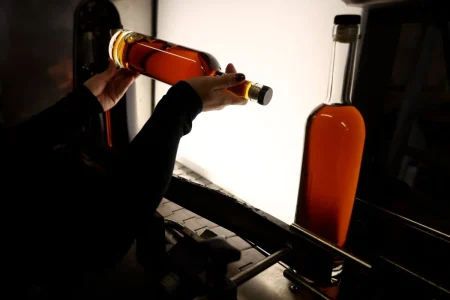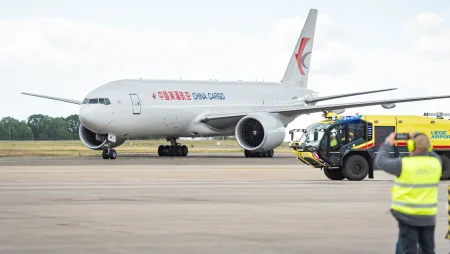The family of former Boeing quality manager John Barnett, who died by suicide in March 2024, has reached a legal settlement with the aircraft company. Barnett, who had raised safety concerns about Boeing’s 787 jets, took his life after being questioned for several days by lawyers. The details of the settlement have not been made public. The case was closed in federal court in South Carolina on Monday. The filing mentioned that the lawsuit could be reopened if the settlement is not finalized within 60 days.
John Barnett worked at Boeing for over 30 years before retiring in 2017. During his time as a quality control manager, he raised serious safety concerns about Boeing’s manufacturing process, especially with the 787 Dreamliner jets. Barnett said he saw sharp metal shavings near flight control wiring. These shavings, if left in place, could have cut wires and possibly caused major failures in the air. He also reported that about 25% of the oxygen systems on some planes might not work properly during emergencies.
After retirement, Barnett began sharing his concerns with journalists and later became involved in legal proceedings related to Boeing’s aircraft safety. He had been giving sworn testimony in Charleston, South Carolina, in early March 2024. He was staying in a hotel near the law offices where he had been questioned. On March 9, 2024, Barnett was found dead in his truck in the parking lot, with a self-inflicted gunshot wound. He was 62 years old and lived in Louisiana.
Boeing had not filed a formal response in court before the settlement was reached. However, the company issued a short statement expressing sympathy. Boeing said it was saddened by Barnett’s death and extended condolences to his family. The company also stated that it had taken actions several years ago to review and address the issues Barnett raised.
According to the lawsuit, Barnett tried to report the safety concerns internally before retiring. However, instead of taking action, his supervisors allegedly ignored his warnings and subjected him to harassment. His family claimed that the ongoing stress from speaking out and the legal process contributed to his mental health struggles. His death occurred during a crucial part of the legal battle, adding urgency to the case.
The recent court filing did not reveal how much money was involved in the settlement. It only noted that both parties have 60 days to finalize the deal, or else the lawsuit could be reopened.
Barnett is not the only person to raise questions about Boeing’s safety practices. The company has faced multiple investigations in recent years, especially after two deadly crashes involving the 737 MAX in 2018 and 2019. These crashes killed a total of 346 people and led to a global grounding of the 737 MAX jets. In response, Boeing has promised to improve its safety and quality control measures. The U.S. Federal Aviation Administration (FAA) and other agencies have also increased oversight of the company’s practices.
In a separate development, China recently lifted a ban on Boeing aircraft deliveries after a 90-day pause in tariffs and trade tensions with the United States. This move could help Boeing recover some of its international business, but the company’s safety image remains under close watch.
Experts say that whistleblowers like Barnett often face high levels of emotional stress. They may fear retaliation or damage to their careers. In some cases, they struggle with depression and anxiety caused by long legal battles and public pressure. Organizations such as the National Whistleblower Center in the U.S. have called for better support systems to protect people who come forward with safety or ethics concerns. Mental health professionals also say that employers must take employee warnings seriously and provide safe spaces to speak up.
Although the lawsuit is now closed, the court document makes it clear that it could be reopened if either side fails to follow through with the settlement. Legal experts say this clause is common in civil settlements. The story of John Barnett has become a reminder of the personal cost that can come with trying to do the right thing. Many hope that lessons from his experience will lead to better protections for workers in the aviation industry and beyond.















